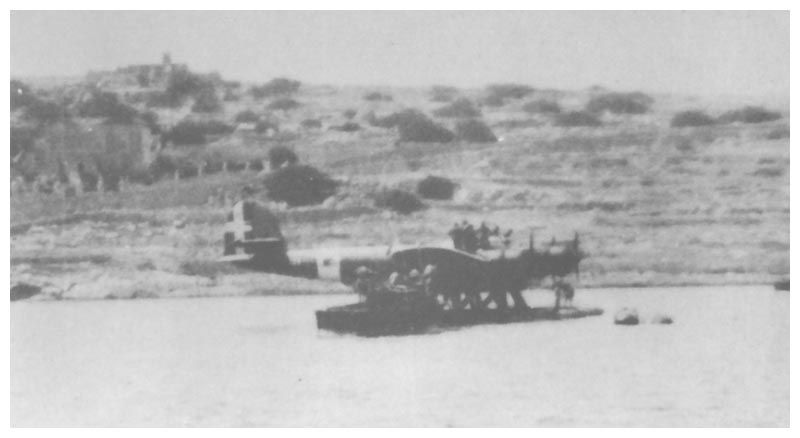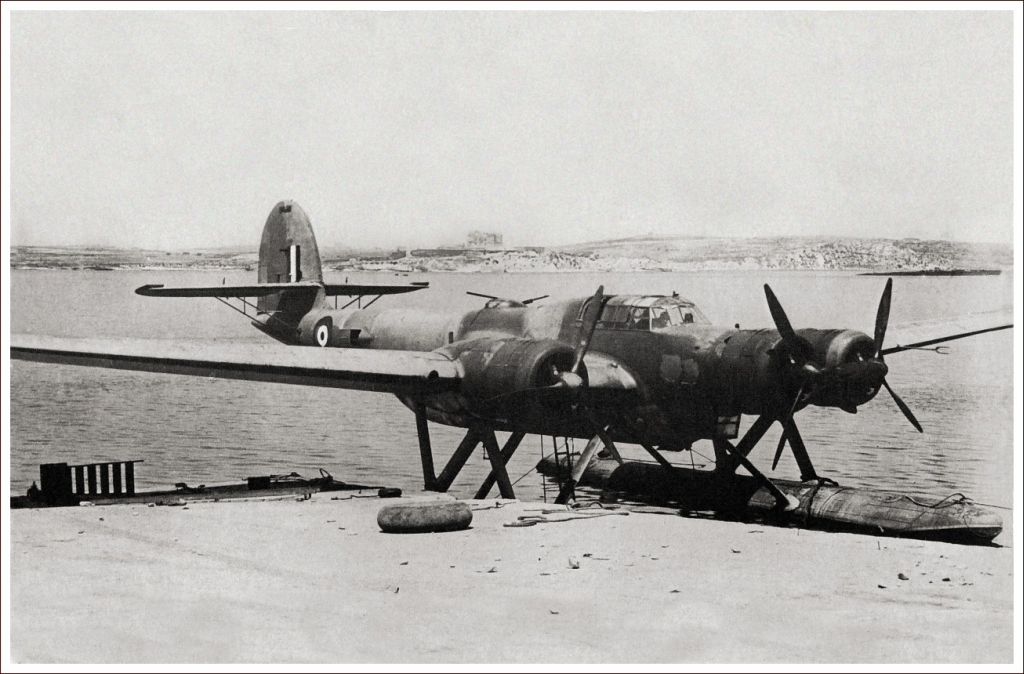Forums
- Forums
- Duggy's Reference Hangar
- Misc Library
- THE FIRST SKY/HYJACKING
THE FIRST SKY/HYJACKING
Post a reply
- Go to Previous topic
- Go to Next topic
- Go to Welcome
- Go to Introduce Yourself
- Go to General Discussion
- Go to Screenshots, Images and Videos
- Go to Off topic
- Go to Works in Progress
- Go to Skinning Tips / Tutorials
- Go to Skin Requests
- Go to IJAAF Library
- Go to Luftwaffe Library
- Go to RAF Library
- Go to USAAF / USN Library
- Go to Misc Library
- Go to The Ops Room
- Go to Made in Germany
- Go to Campaigns and Missions
- Go to Works in Progress
- Go to Juri's Air-Raid Shelter
- Go to Campaigns and Missions
- Go to Works in Progress
- Go to Skinpacks
- Go to External Projects Discussion
- Go to Books & Resources
-
13 years ago
 Main AdminTed Strever was a Royal Air force pilot and was based in Malta during the spring of 1942. Ted took off in his Bristol Beaufort bomber on one particular mission in late July to intercept an Italian supply ship. He was shot down at sea after scoring a direct hit on the supply ship, which managed to do enough damage to Ted?s plane before sinking.
Main AdminTed Strever was a Royal Air force pilot and was based in Malta during the spring of 1942. Ted took off in his Bristol Beaufort bomber on one particular mission in late July to intercept an Italian supply ship. He was shot down at sea after scoring a direct hit on the supply ship, which managed to do enough damage to Ted?s plane before sinking.
Not long after scrambling into their dingy after the crash Ted and his crew where picked up by an Italian sea plane and made prisoners of war.
It did not take them long to learn that they would be taken to Taranto in Italy where they would spend the rest of the war as prisoners.
The thought of their approaching doom spurred them into taking action against their captors. With the watchful eyes of the guard on them and limited communication the worlds first skyjack swung into action.
They started straight for the radio operator, clearly to make sure no contact was made to the base and successfully took him out. They then overpowered an unexpected guard and managed to get his weapon off him. The first part of their attack was successful but the turning point came when the co-pilot pulled a pistol on them. Luck was on their side however as it was one the Italian?s own comrades that knocked the weapon from his hands in the frantic struggle to regain control. It was after that bit of fortune in the frenzied chaos that they knew the plane was theirs, and Ted wasted no time in taking over the controls.
New problems now became apparent. The first and more immediate issue was that they were fast running low on fuel. After asking the Italian Engineer kindly (at gunpoint) to switch to reserves and by changing their route, flying rather to their base at Malta instead of the African coast, this first problem was quickly taken care of. Next was the problem of flying an Italian plane. Ted?s experience was sufficient to fly an Italian plane but to the allies this was an enemy aircraft fast approaching the Malta coast. Soon there were spitfires gunning them down. Normally the sight of spitfires off the wing of his torpedo bomber would have been comforting, however this was clearly not a Bristol Beaufort bomber and with holes being shot in his tail this was definitely not comforting. Ted hurled the first pilot back into his seat and ordered him in hurried sign-language to land in the sea.
One of the men then whipped off his shirt and took his vest ? the only white article he had ? and waved it out of the window making it clear that they had come to surrender ? albeit to their own side!
The first wave of spits managed to do fair damage to the plane but they landed safely and the worlds 1st skyjack was over.
Astonished to see four RAF?s in the Italian plane a member of the launch team towing them back to St Paul?s Bay said ?We thought it was old Mussolini coming to give himself up!?
Ted Strever received a DFC for his achievement in the war. He died in Haenertsburg, South Africa in 1997 at the age of 77.
ANOTHER REPORT.
The SAAF at War 1940-1984 wrote:
In July Tobruk was in the hands of Rommel, and his Afrika Korps was dug in at El Alamein. This enabled Rommel to use Tobruk as a harbour for his much-needed fuel supplies. The supply ships were coming under regular attacks by Allied torpedo bomber squadrons based on Malta,including 217 RAF Squadron flying Beauforts. One of the squadron members was Lt E T (Ted) Strever, a South African seconded to the RAF.
On 28 July 1942 the squadron was scrambled to intercept a German merchant vessel with two escort ships. With him were Pilot Officer W M Dunsmore of Britain, and two New Zealanders, Sgt J A Wilkinson and Sgt A R Brown. He was flying Beaufort 'I' L9820, from which he dropped his torpedo. As he went over the boat, his Beaufort was hit in both engines. having ditched the aircraft, all four men got into the dingy, to be picked up by an Italian Cant Z506B float-plane a few hours later.
They were taken to the small island of Corfu, where the Italian aircrews treated them almost like VIP's. Next morning they were flown to Italy from where they were to be taken to a POW camp. During the flight Sgt Wilkinson overpowered an Italian guard and one of the crew, while Lt Strever went for the two pilots. There were weapons everywhere, and both Strever and Wilkinson were nearly shot by the pilot. Eventually they got the upper hand, however.
Lt Strever took over control and, keeping low to avoid Allied radar, proceeded to Malta. Just short of Malta they were intercepted by four Spitfires of 603 RAF Squadron which forced them to land on the sea. A RAF air-sea rescue launch was sent to tow the plane to Malta. The photo (above) was taken while the Allied and Italian crews were still standing on the Cant. The launch can be seen preparing to take off the crews. For this Strever and Dunsmore were awarded the DFC, and Wilkinson and Brown the DFM. All four survived the war. Ted Strever today lives in Northern Transvaal. (Mrs Tilley)
1 MORE
From "THE AIR BATTLE FOR MALTA - published HMSO 1944 (I love some of the English of that time....'The Spitfires spat...'
The captain of the aircraft was Lt E T Strever of Klerksdorp, SA; the rest of the crw were Pilot Officer (now FLying Officer) W M Dunsmore of Mahull, near Liverpool, Sergeant J A Wilkinson of Auckland, and Sergeant A R Brown of Timaru, both from New Zealand. After releasing his torpedo at a merchant vessel, and being badly shot up by flak, Strever realised that his aircraft was doomed. As it hit the sea, he went under, but somehow managed to clamber clear of the wreckage and join the crew in their dingy. Ninety seconds later the aircraft sank. After paddling for some time towards the coast, they saw an Italian float plane, which presently landed about a hundred yards away. Strever swam over to it and he was courteousyly received with brandy and a cigarette; he then explained in pantomine what happened. The rest of the crew was picked up, and the Cant floatplane taxied to a nearby island. Here, after a hearty meal, they were given the run of the officers mess for the rest of the day. In the evening they had another excellent meal with the Italian officers, who considerately gave up their rooms to the crew when bedtime arrived. The only sense of imprisonment was that guards were posted in the passage and outside their windows. In the morning, after a breakfast of eggs and coffee specially provided for them, and having been photographed with their captors, the crew were taken aboard the Cant again, which then set off for Taranto. The Cant's crew consisted of a pilot, second pilot, engineer, wireless-operator-observer and a corporal acting as an armed escort. Wilkinson was the first to see an opportunity of capturing the aircraft. Attracting the observers attention, he hit him on the jaw and seized the escort's revolver. Passing this to Strever, he then used the corporal's body as a shield in approaching the first pilot. Strever followed, brandishing the escort's pistol, and held up the pilot before he could get at his own weapon. The Italian had put the aircraft's nose down as though to land, but at a menacing sign from Strever he changed his mind and pulled the stick back again. Meanwhile, Dunsmoore and Brown dealt with the rest of the crew and Stever took over the controls. The capture of the aircraft took only a few seconds, but Strever was now faced with the difficulty of having no maps or charts, and of not knowing the speed or capacity of the aircraft, nor how much petrol whould be needed to reach Malta. He therefore set the second pilot free and put him at the controls. After making rough and ready calculations of his own, Strever decided that if they could not reach Malta they would come down in Sicily and trust to luck. The Italian steered the course set for him and Strever himself took the controls from time to time. At length they hit the toe of Italy, which enable him to get some sort of fix, and he decided to chance the petrol situation and head for Malta. As the approached the Island there began the most terrifying episode of the trip. WHile flying a deck level, 3 Spitfires attacked them. Brown spun the guns about to show the fighters that he was not going to fire, and Dunsmore took off his white vest and trailed it out of the cockpit as a sign of surrender. But still the Spitfires spat, and when one of the wings was hit by machine guns and cannon, Strever ordered the Italian to come down on the water. As they did so the engine stopped. They had run out of petrol. Subsequently they were towed to Malta, where Strever personally supervised the Italians comfort, which he felt was the least he could do in return for their hospitality.
Post a reply
- Go to Previous topic
- Go to Next topic
- Go to Welcome
- Go to Introduce Yourself
- Go to General Discussion
- Go to Screenshots, Images and Videos
- Go to Off topic
- Go to Works in Progress
- Go to Skinning Tips / Tutorials
- Go to Skin Requests
- Go to IJAAF Library
- Go to Luftwaffe Library
- Go to RAF Library
- Go to USAAF / USN Library
- Go to Misc Library
- Go to The Ops Room
- Go to Made in Germany
- Go to Campaigns and Missions
- Go to Works in Progress
- Go to Juri's Air-Raid Shelter
- Go to Campaigns and Missions
- Go to Works in Progress
- Go to Skinpacks
- Go to External Projects Discussion
- Go to Books & Resources
